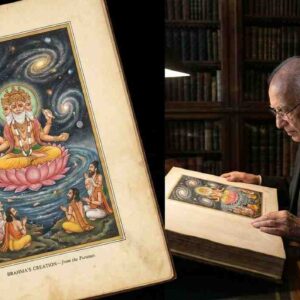Forgiveness or Justice? The Delicate Balance in Modern India’s Moral Landscape
Forgiveness, deeply embedded in Hindu philosophy, is more than an act of benevolence—it is a transformative process that leads to inner peace and societal harmony. However, in an era marked by increasing polarization and demands for justice, the question arises: is forgiveness still relevant, or has it become a luxury in a world seeking accountability?
The Philosophical Foundations of Forgiveness
Hindu scriptures, from the Bhagavad Gita to the Mahabharata, emphasize forgiveness (kshama) as a virtue that transcends human limitations. In the Gita, Lord Krishna advises Arjuna to embrace forgiveness as an act of strength, not weakness, saying,“He who is free from malice and forgiving by nature, that man is dear to me.”This reflects the belief that forgiveness is not just about absolving others but also liberating oneself from the burden of anger and resentment.
The Mahabharata reinforces this idea through characters like Yudhishthira, who embodies the ideal of forgiveness even in the face of betrayal. Such teachings underscore the transformative power of forgiveness in healing both individual wounds and collective conflicts.
Forgiveness in Modern India: A Challenging Virtue
While Hindu philosophy extols forgiveness, its application in contemporary India remains contentious. A 2023 survey by the National Council of Applied Economic Research found that68% of Indiansstruggle with forgiveness in situations involving personal betrayal or systemic injustice, citing a fear of enabling wrongdoing.
This dilemma is particularly evident in public discourse. Debates over granting clemency in high-profile cases, such as death penalty reviews or reconciliation efforts in communal conflicts, often spark polarized opinions. Critics argue that forgiveness can undermine accountability, while proponents highlight its potential to foster reconciliation and long-term peace.
Government and Community Initiatives Promoting Forgiveness
Recognizing the need to cultivate forgiveness as a social virtue, several initiatives have emerged to address this challenge:
- Restorative Justice Programs: The Ministry of Home Affairs has piloted community-based conflict resolution programs in regions affected by communal violence. These initiatives, inspired by Gandhian principles, focus on dialogue and reconciliation rather than retribution.
- Educational Reforms: Under the National Education Policy (NEP) 2020, schools are integrating value-based education, including modules on emotional intelligence and forgiveness, to nurture empathy and conflict resolution skills among students.
- Spiritual Movements: Organizations like Art of Living and ISKCON actively promote forgiveness through workshops and spiritual discourses, bridging ancient teachings with modern realities.
The Healing Power of Forgiveness
Forgiveness, as envisioned in Hindu philosophy, is not about condoning injustice but transcending it. It involves acknowledging pain, seeking accountability where necessary, and ultimately letting go of anger to achieve inner peace. This perspective aligns with modern psychology, which views forgiveness as a key factor in emotional and mental well-being.
For example, a 2024 report by the Indian Council of Medical Research highlights that individuals who practice forgiveness report30% lower stress levels, demonstrating its profound impact on mental health.
Conclusion
Forgiveness remains a cornerstone of Hindu philosophy, offering a timeless path to healing and harmony. While its application in modern India is fraught with challenges, its value as a tool for personal and societal transformation cannot be overstated. By embracing forgiveness—not as a sign of weakness but as a profound act of strength—India can navigate the complexities of justice and reconciliation, fostering a future rooted in both accountability and compassion.










